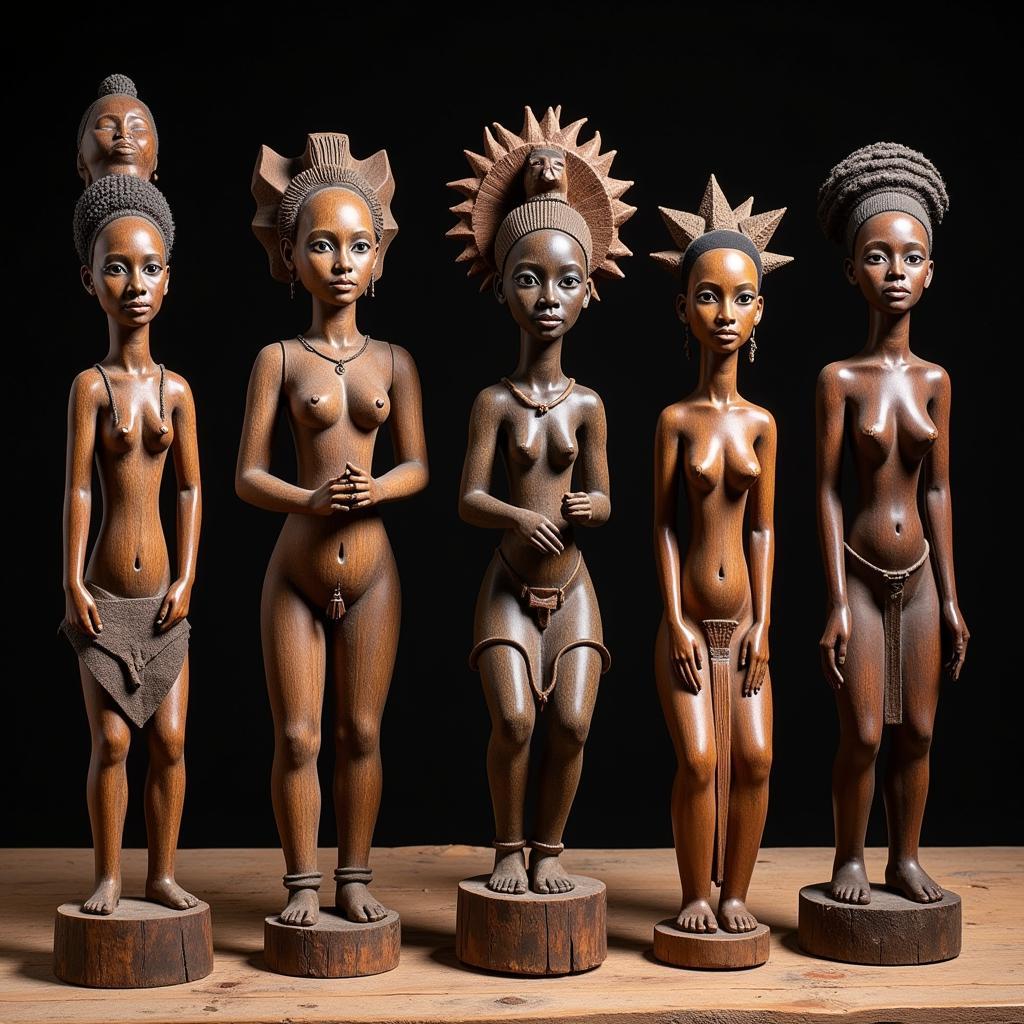African Kings Multiple Wives: A Deep Dive into History and Culture
The practice of African kings having multiple wives, often referred to as polygamy, is a complex topic deeply intertwined with the continent’s rich history, diverse cultures, and socio-political structures. Understanding this practice requires moving beyond simplistic interpretations and delving into its nuanced significance within specific African societies.
The Significance of Polygamy in African Kingdoms
Polygamy wasn’t merely about personal preference or displaying power; it played crucial roles in the social fabric of many African kingdoms. It was often a symbol of wealth and status, as a larger family could signify greater prosperity and influence. Marriages were often strategic alliances, strengthening ties between different communities and solidifying the king’s authority. Furthermore, a large number of wives could contribute to a larger workforce, supporting agricultural production and household management.
Beyond the Numbers: The Roles of Royal Wives
Each wife often held specific responsibilities within the royal household, ranging from managing specific aspects of the kingdom’s resources to raising the king’s children. This division of labor ensured the smooth functioning of the royal court and contributed to the overall stability of the kingdom. Furthermore, in some cultures, certain wives held significant political power, advising the king on important matters and acting as intermediaries between the king and his people.
Cultural and Religious Perspectives on Polygamy
The practice of polygamy varied significantly across different African cultures and was often influenced by religious beliefs and local customs. In some societies, it was seen as a divine mandate, reflecting religious interpretations of fertility and prosperity. In others, it served to ensure the continuation of the royal lineage and prevent succession disputes. These diverse perspectives highlight the importance of understanding the specific cultural context when discussing polygamy in Africa.
The Impact of Colonization and Modernization
The arrival of European colonialism brought significant changes to African societies, including challenges to traditional practices like polygamy. Missionaries and colonial administrators often condemned polygamy, viewing it as incompatible with Western values and promoting monogamy as the preferred marital structure. This period marked a significant shift in attitudes towards polygamy, with its practice declining in some regions while persisting in others.
Polygamy in Africa Today: A Complex Reality
Today, polygamy remains a complex and often debated practice in Africa. While it continues to be practiced in some communities, it faces increasing scrutiny and legal restrictions in many countries. Modernization and urbanization have also influenced attitudes towards polygamy, with younger generations often holding different views from their elders. Understanding the current status of polygamy requires acknowledging the diverse perspectives and evolving social dynamics within contemporary African societies.
Navigating the Legacy of Polygamy
Dr. Abena Oduro, a renowned anthropologist specializing in African kinship systems, explains, “The legacy of polygamy in Africa is multifaceted and requires nuanced understanding. It’s crucial to move beyond simplistic generalizations and explore the complex historical, cultural, and social factors that have shaped this practice across the continent.” Professor Kwame Asante, a historian specializing in pre-colonial African kingdoms, adds, “Polygamy was often a strategic tool for consolidating power and building alliances, but its impact on women and families varied significantly depending on the specific cultural context.”
Conclusion
African kings having multiple wives is a complex topic intertwined with history, culture, and politics. From demonstrating status and forming alliances to influencing lineage and workforce, the practice played a multifaceted role. While impacted by colonization and modern trends, understanding this custom requires acknowledging the diverse perspectives and nuances within African societies.
FAQ
- What is the historical significance of polygamy in African kingdoms? It symbolized wealth, facilitated alliances, and contributed to the workforce.
- How did colonization impact the practice of polygamy in Africa? It introduced Western values promoting monogamy, leading to its decline in some regions.
- What are the diverse cultural perspectives on polygamy in Africa? It varied across cultures, influenced by religious beliefs and local customs.
- What is the current status of polygamy in Africa today? It persists in some communities, faces legal restrictions in others, and is influenced by modernization.
- Why is it important to understand the nuanced significance of polygamy? To move beyond generalizations and appreciate the complex historical and social context.
- How did polygamy contribute to the social structure of African kingdoms? It established hierarchies within the royal court and reinforced the king’s authority.
- What are some of the challenges associated with understanding polygamy in Africa? The diversity of cultural practices and the evolving social dynamics require careful consideration.
Need support? Contact us 24/7: Phone: +255768904061, Email: kaka.mag@gmail.com, or visit us at Mbarali DC Mawindi, Kangaga, Tanzania.

